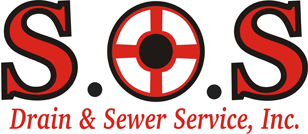Tree roots can cause significant damage to sewer pipes, resulting in costly repairs for homeowners and municipalities alike. This is a common problem that has been around for centuries, as tree roots naturally seek out sources of water and nutrients – which can lead them directly to underground sewer lines. For many years, it was… Read more »
Blog
How Does Drain Cleaning Prevent Clogs?
Drain cleaning is an essential aspect of plumbing maintenance that involves removing any obstructions or buildup in your drains and pipes. It is a preventive measure that aims to avoid clogs and blockages, which can lead to costly repairs and inconveniences. In this article, we will discuss how drain cleaning helps prevent clogs and the… Read more »
Can DIY Drain Cleaning Methods Damage Pipes?
Drain clogs are a common household problem that can cause inconvenience and discomfort. It is tempting to try DIY drain cleaning methods in order to save time and money, rather than calling a professional plumber. However, it is important to understand the potential risks of these methods on your pipes. Improper use or overuse of… Read more »
Top 8 Essential Practices for How to Prevent Clogged Drains in Your Home
Struggling with clogged drains can be frustrating and messy. To help you avoid this common household nuisance, we’ve put together a straightforward guide on how to prevent clogged drains in your home. In this article, you’ll discover practical tips and routine practices to keep your drains clear, from your kitchen sink to your bathroom pipes,… Read more »
Does Ignoring Minor Clogs Lead To Major Sewer Line Issues?
Sewer lines are an essential part of our home’s plumbing system, responsible for carrying wastewater away from our homes. A minor clog in the sewer line can cause inconvenience and unpleasant odors, but many homeowners tend to ignore these small issues, thinking they will resolve on their own. However, ignoring minor clogs can lead to… Read more »
Can Grease Buildup Lead To Sewer Line Blockages?
Grease buildup is a common cause of sewer line blockages and can lead to costly repairs for homeowners. Sewer lines are responsible for carrying wastewater from homes to the main sewer system, and they can easily become clogged with grease if proper precautions are not taken. This type of blockage can result in sewage backups,… Read more »
Common Reasons Why Your Dishwasher Is Not Draining
A dishwasher that doesn’t drain properly can be frustrating and inconvenient. There are several reasons why your dishwasher may not be draining correctly. Understanding these common issues can help you diagnose and fix the problem quickly. 1. Clogged Drain Hose One of the most common reasons for a dishwasher not draining is a clogged drain… Read more »
How to Fix a Gurgling Drain Pipe
Gurgling drain pipes can be a nuisance in your home, indicating underlying issues that need to be addressed promptly. Ignoring these sounds can lead to more significant problems, such as clogs, leaks, or even sewer backups. Understanding the causes and solutions for gurgling drain pipes can help you maintain a healthy plumbing system. Here’s what… Read more »
Why You Should Never Pour Grease Down the Drain
Pouring grease down the drain might seem like a convenient way to dispose of it, but it can lead to serious plumbing issues and costly repairs. At SOS Drain & Sewer Service, we recommend avoiding this common mistake to keep your drains flowing smoothly. Causes Clogs Grease Solidifies When hot grease cools down in your… Read more »
What to Do When Your Dishwasher Does Not Drain
If your dishwasher is not draining properly, it can be a frustrating and messy problem. However, there are several steps you can take to troubleshoot and resolve the issue before calling a professional drain cleaning service like SOS Drain & Sewer Service. Check for Blockages Step 1: Inspect the Drain Hose Check the drain hose… Read more »



